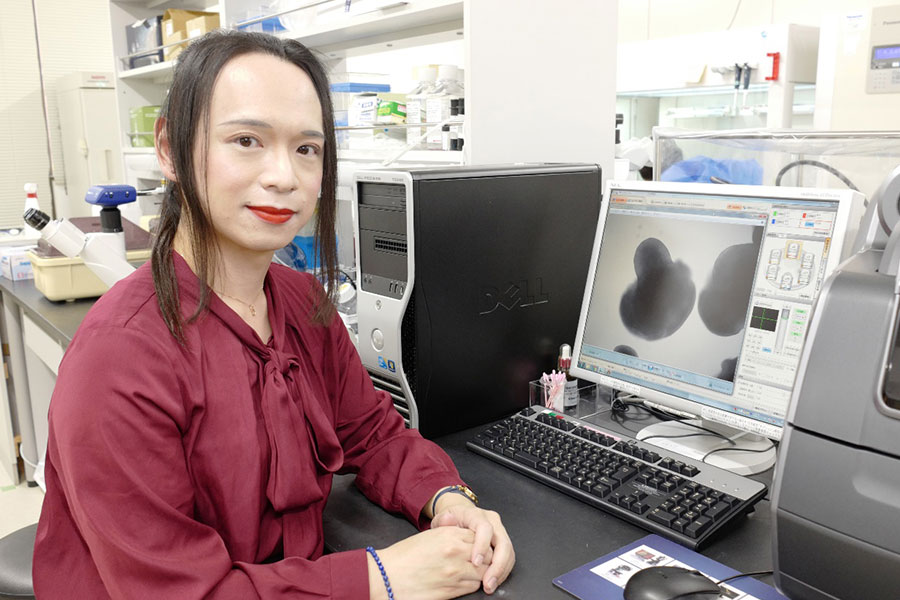Neural Organogenesis Research Program, RIKEN BDR-Otsuka Pharmaceutical Collaboration Center
The RIKEN BDR-Otsuka Pharmaceutical Collaboration Center (RBOC) is one of the two collaboration centers at BDR and is a partnership with Otsuka Pharmaceutical Co. Ltd, a Japanese pharmaceutical and nutraceutical company. Launched in 2016, the RBOC aspires to conceive novel and original results through collaborative research investigating disease mechanisms based on developmental, regenerative and systems biology approaches. In June 2020, the Neural Organogenesis Research Program headed by Hideya Sakaguchi was established under the RBOC to accelerate research specifically in areas of neurobiology and the understanding of neurodegenerative diseases. Originally trained as a neurologist, he developed an interest in generating three-dimensional brain tissues and joined the laboratory of the late Yoshiki Sasai at the former RIKEN Center for Developmental Biology (CDB) for his Ph.D. thesis research, where he gained experience generating brain organoids. We talked to Dr. Sakaguchi to find out more about the laboratory.
How many people are in the laboratory?
There are currently three people. One research scientist, one person who fills the role as both lab assistant and technical staff, and me the research leader. We hope to welcome more researchers in the near future.
What are the main research themes of the laboratory?
We are interested in shedding light on the mechanisms underlying the self-organizing development of the hippocampus using hippocampal organoids differentiated from pluripotent stem cells (PSCs) such as embryonic stem cells (ESCs) or induced pluripotent stem cells (iPSCs). As we can also generate hippocampal neurons, we would like to also carry out applied research to explore the disease mechanisms of psychiatric diseases such as schizophrenia that are caused by abnormal function of hippocampal neurons.
What are some strengths of the laboratory?
A major strength of our lab is having honed the techniques for inducing differentiation of PSCs into hippocampus organoids as well as hippocampus neurons. While many groups have reported the successful generation of cerebral organoids from PSCs, very few groups, if any, have reported being successful in generating hippocampal organoids. We also have experience in inducing differentiation of cerebral, spinal cord and choroid plexus tissues from PSCs by recapitulating early developmental conditions in cell culture systems. We plan to apply these techniques to unveil fundamental developmental processes of the brain as well as neurological and psychiatric disease mechanisms.
Did the laboratory face any challenges trying to open during the early phase of the COVID-19 pandemic?
Setting up the lab with the pandemic in full swing, we experienced delays in construction of the lab and also had difficulties obtaining necessary research equipment for the lab due to supply shortages, and as a result it took a while to get our lab in order. It was only around March 2021, that we were able to really get the ball rolling with our research projects.
